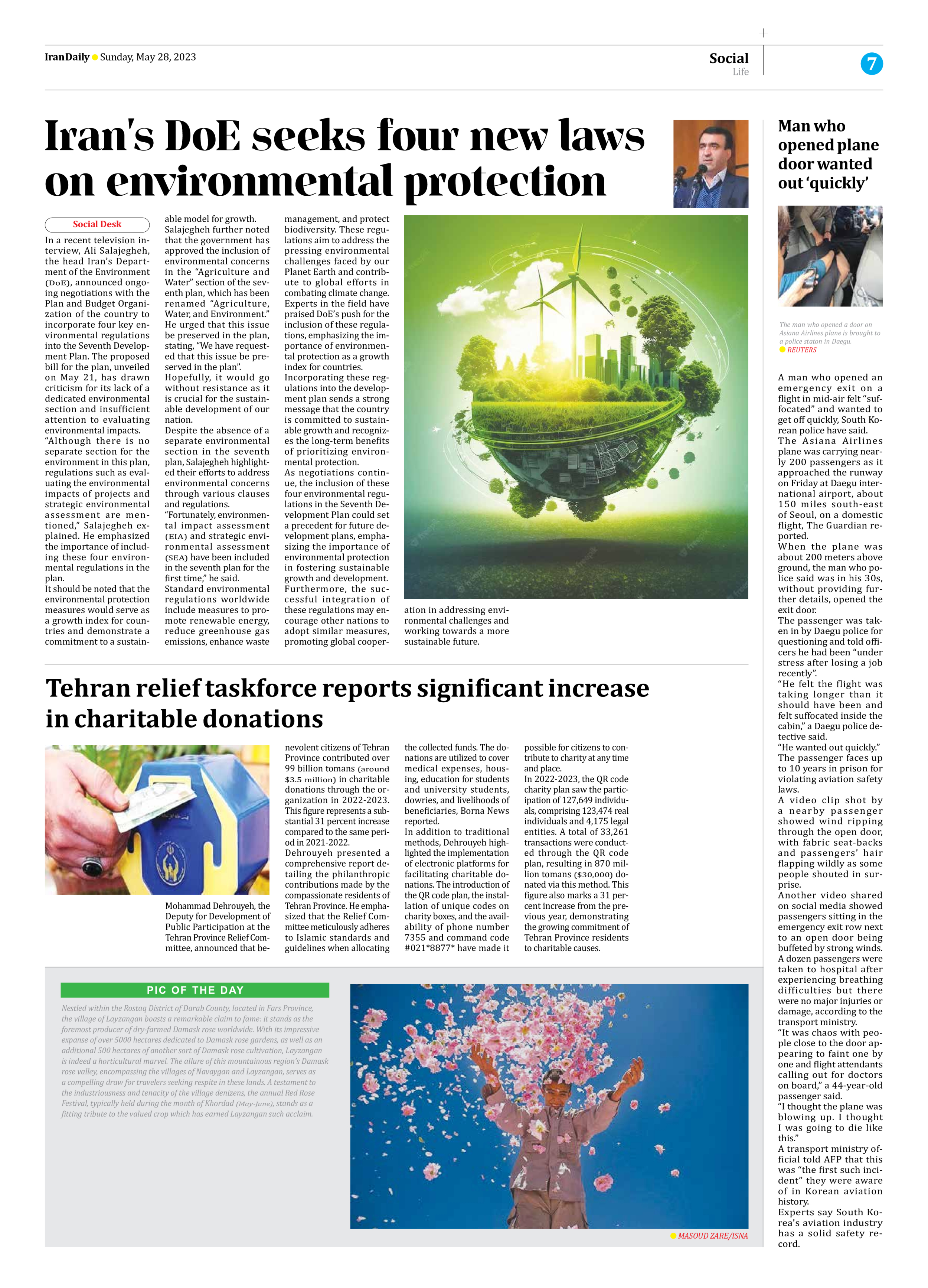
Iran’s DoE seeks four new laws on environmental protection
In a recent television interview, Ali Salajegheh, the head Iran’s Department of the Environment (DoE), announced ongoing negotiations with the Plan and Budget Organization of the country to incorporate four key environmental regulations into the Seventh Development Plan. The proposed bill for the plan, unveiled on May 21, has drawn criticism for its lack of a dedicated environmental section and insufficient attention to evaluating environmental impacts.
“Although there is no separate section for the environment in this plan, regulations such as evaluating the environmental impacts of projects and strategic environmental assessment are mentioned,” Salajegheh explained. He emphasized the importance of including these four environmental regulations in the plan.
It should be noted that the environmental protection measures would serve as a growth index for countries and demonstrate a commitment to a sustainable model for growth.
Salajegheh further noted that the government has approved the inclusion of environmental concerns in the “Agriculture and Water” section of the seventh plan, which has been renamed “Agriculture, Water, and Environment.” He urged that this issue be preserved in the plan, stating, “We have requested that this issue be preserved in the plan”.
Hopefully, it would go without resistance as it is crucial for the sustainable development of our nation.
Despite the absence of a separate environmental section in the seventh plan, Salajegheh highlighted their efforts to address environmental concerns through various clauses and regulations.
“Fortunately, environmental impact assessment (EIA) and strategic environmental assessment (SEA) have been included in the seventh plan for the first time,” he said.
Standard environmental regulations worldwide include measures to promote renewable energy, reduce greenhouse gas emissions, enhance waste management, and protect biodiversity. These regulations aim to address the pressing environmental challenges faced by our Planet Earth and contribute to global efforts in combating climate change.
Experts in the field have praised DoE’s push for the inclusion of these regulations, emphasizing the importance of environmental protection as a growth index for countries.
Incorporating these regulations into the development plan sends a strong message that the country is committed to sustainable growth and recognizes the long-term benefits of prioritizing environmental protection.
As negotiations continue, the inclusion of these four environmental regulations in the Seventh Development Plan could set a precedent for future development plans, emphasizing the importance of environmental protection in fostering sustainable growth and development.
Furthermore, the successful integration of these regulations may encourage other nations to adopt similar measures, promoting global cooperation in addressing environmental challenges and working towards a more sustainable future.







